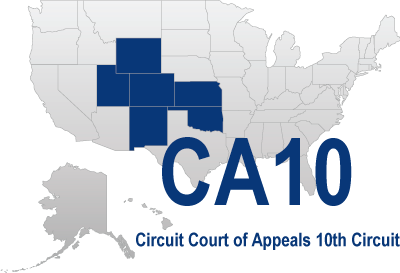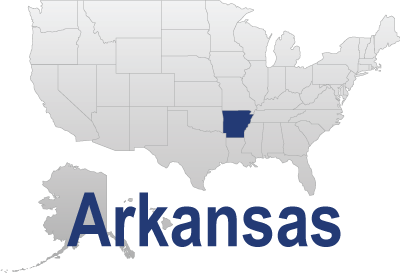Rodriguez v. United States, 135 S. Ct. 1609 (2015)
DENNYS RODRIGUEZ, PETITIONER v. UNITED STATES
ON WRIT OF CERTIORARI TO THE UNITED STATES COURT OF APPEALS FOR THE EIGHTH CIRCUIT
April 21, 2015
JUSTICE GINSBURG delivered the opinion of the Court.
In Illinois v. Caballes, 543 U. S. 405 (2005), this Court held that a dog sniff conducted during a lawful traffic stop does not violate the Fourth Amendment’s proscription of unreasonable seizures. This case presents the question whether the Fourth Amendment tolerates a dog sniff conducted after completion of a traffic stop. We hold that a police stop exceeding the time needed to handle the matter for which the stop was made violates the Constitution’s shield against unreasonable seizures. A seizure justified only by a police-observed traffic violation, therefore, “become[s] unlawful if it is prolonged beyond the time reasonably required to complete th[e] mission” of issuing a ticket for the violation. Id., at 407. The Court so recognized in Caballes, and we adhere to the line drawn in that decision.
US v. Hill (6C 1999) 195 F3 258, 264 [“Once the purpose of the traffic stop is completed, a motorist cannot be further detained unless something that occurred during the stop caused the officer to have a reasonable and articulable suspicion that criminal activity was afoot.”] The court in Caballes cautioned that a traffic stop “can become unlawful if it is prolonged beyond the time reasonably required to complete the mission” of issuing warnings, etc.
If an officer can complete traffic-based inquiries expeditiously, then that is the amount of “time reasonably required to complete [the stop’s] mission.” Caballes, 543 U. S., at 407. As we said in Caballes and reiterate today, a traffic stop “prolonged beyond” that point is “unlawful.” Ibid. The critical question, then, is not whether the dog sniff occurs before or after the officer issues a ticket, as JUSTICE ALITO supposes, post, at 2–4, but whether conducting the sniff “prolongs”—i.e., adds time to—“the stop,” supra, at 6.
In basic terms the Fourth Amendment covers two things; a search, and a seizure. The courts have generally found that the “k9 sniff” of the “free air” surrounding a vehicle during an otherwise lawful traffic stop is not considered to be a search.
Search: the operator or occupants do not have a reasonable expectation of privacy in the air that surrounds their vehicle so there is no 4th amendment search consideration of the K9 sniff. So a K9 sniff may be conducted on a vehicle at any time during the “normal course of business” of the traffic stop without the sniff being considered a search. I think we all have a pretty good understanding that the use of a K9 to sniff the vehicle does not constitute a search in this instance. If a, (trained, certified, and reliable), K9 provides an alert to the vehicle during this sniff then the alert, in most jurisdictions, is considered to be probable cause to believe that the vehicle contains contraband. Since probable cause is established a search may be conducted on the vehicle based on the “vehicle exception” to the warrant requirement.
Seizure: So what is the “normal course of business?” this is the time period that the officer uses to speak to the driver, ask questions related to the reason for the stop or travel, run any license checks, warrant checks, criminal history checks, and write out a warning or citation and explain the violation or follow up procedure to the driver. This is the time period that the seizure of the driver, occupants, and vehicle is taking place as a result of the initial traffic stop. If a K9 sniff is conducted during this time period and does not prolong the time of the stop then the there is no 4th amendment seizure implicated by the K9 sniff. Illinois v. Caballes, 543 U.S. 405 (2005), was a United States Supreme Court case in which the Court held that the Fourth Amendment is not violated when the use of a drug-sniffing dog during a routine traffic stop does not unreasonably prolong the length of the stop.
Now things start to get interesting at the completion of this stop. Any K-9 sniff conducted after the stop has officially concluded will still not be considered a search and therefore will have no 4th amendment search implications attached. However, if a K9 sniff is conducted after the stop is completed then a separate seizure (of the driver, occupants, and vehicle) has occurred. This seizure must be based on reasonable suspicion, probable cause, or consent.
Rodriguez v United States began in Nebraska which is under the jurisdiction of the 8th Circuit and the legal journey of the case is as follows:
- Rodriguez was charged federally with drug charges
- Rodriguez has a suppression hearing. As a result of the hearing the Judge rules that the officer lacked reasonable suspicion to extend the stop for the purpose of the sniff. However, he reasons that the 7 or 8 minute delay was a “de minimis” intrusion of Rodriguez’s personal liberty and for that reason was permissible. Motion to suppress was denied.
- Rodriguez enters a conditional plea of guilty, was sentenced to 5 years, appeals to 8th Circuit.
- 8th Circuit agreed with the trial judge that the 7 ot 8 minute delay was “de minimis”, however the court declined to reach the question whether the officer had reasonable suspicion to continue Rodriguez’s detention after issuing the written warning.
- Rodriguez appeals to U.S. Supreme Court.
- Supreme Court disagrees with both the trial judge and the 8th circuit on the “de minimis” issue and rules that any detention that exceeded the time needed for the stop is unreasonable. It is also important to note here that the Supreme Court mentions the 8th Circuit’s failure to address the issue of whether or not the officer had probable cause to extend the detention. Recognizing this as an important issue in the case the Supreme Court vacated the Circuit Courts previous decision and remanded the case back to them for further proceedings to address the issue.
So what does this all mean for the dog and the handler? Timing is everything.
- If the sniff you conduct on a vehicle during the normal course of business of a traffic stop this does not prolong the stop there are no 4th amendment issues.
- If the sniff you conduct on a vehicle during or after a traffic stop prolongs the time of the stop then the extended seizure must be supported by reasonable suspicion (or consent).





